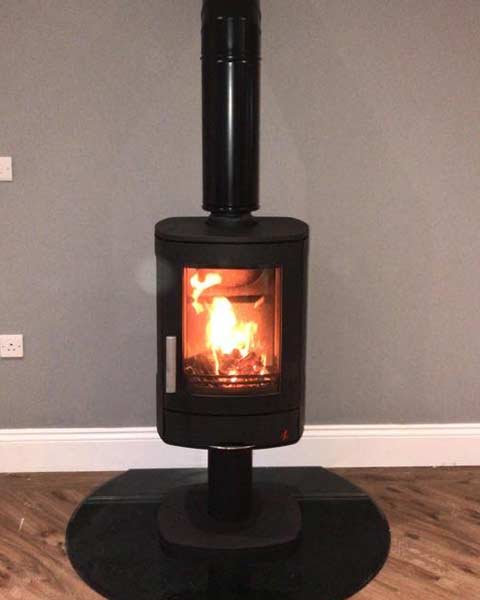Regarding kitchen renovations, the spotlight often shines on luxurious cabinets, trendy countertops, and sleek backsplashes. Nevertheless, a key transformative factor of a kitchen is commonly disregarded: the cooking appliance. Specialists in stove installation are the hidden champions of this venture, guaranteeing that one of the most essential appliances in the home is safely and accurately set up. Their expertise improves not just the efficiency of the kitchen but also contributes to the overall design and enjoyment of kitchen areas.
Choosing a new stove, whether it's gas, electric, or induction, is just the initial phase of the journey. Individuals often face a myriad of decisions and considerations, from comprehending local building codes and safety measures to ensuring that their kitchen is ready for the new addition. Traditional stove installation seeks to offer important guidance into stove installation, helping homeowners navigate the complexities and avoid common pitfalls. With assistance from installation professionals, the aspiration for a stunningly efficient kitchen can be realized, setting the stage for tasty dishes and cherished get-togethers.
Types of Stoves & Considerations for Installation
When considering a modern stove setup, it’s vital to know the various types of stoves on the market and the unique requirements each one entails . Gas stoves have long been chosen for their quick heating capabilities and exact temperature control. When installing a gas stove, residents need to ensure they have adequate gas lines and ventilation in place, which may involve modifications to their current infrastructure. Additionally, safety measures must be taken into account to minimize gas leaks and ensure compliance with local regulations .
Conversely, electric stoves are known for their simplicity of installation and lower upfront costs. They typically require a dedicated electrical outlet and, depending on the model , may need an electrical upgrade for optimal performance. Induction cooktops , a well-known subset of electric stoves, offer modern features and efficiencies but come with their own set of installation requirements, such as ensuring compatibility with the kitchen's current electrical system. Residents should be informed of these factors when choosing between electric and induction options.
In conclusion, the choice between gas and electric stoves will notably influence the installation process . Homeowners must evaluate their kitchen configuration, existing utilities, and long-term cooking preferences . If you select a gas stove with its associated safety protocols or an electric model with specific electrical requirements, comprehending these stove types and their installation considerations is crucial for a smooth and successful kitchen renovation .
Safety & Regulations in Stove Installation
Ensuring safety and compliance during stove setup is essential for every household. Firstly and foremost, it is imperative to adhere to local building codes and regulations, which vary by region. These codes dictate certain requirements for venting, electrical and gas connections, and space around the cooker. Not only do these rules help prevent hazards, but they further ensure that your setup meets the necessary lawful standards.
Another important aspect of security is hiring a professional technician who is familiar with these regulations and industry standards. Professionals have the expertise and know-how to evaluate your kitchen and identify the safest and optimal way to install your stove. They can identify possible issues, such as improper airflow or inadequate drainage systems, which are vital for gas cooker installations. This knowledge minimizes the risk of accidents and ensures your stove is set up for maximum performance.
Ultimately, regular upkeep and security checks are essential after installation. Residents should be on the lookout for indications of gas leakages, malfunctioning parts, or any abnormalities in stove operation. Additionally, ensuring that your kitchen has adequate airflow is important for both security and appliance efficiency. Taking these precautions will not only prolong the life of your stove but will additionally create a safe cooking environment for you and your family.
Care & Resolution for Your Stove
Maintaining your stove in prime condition demands routine maintenance and care. Begin by sanitizing the exterior and interior frequently to prevent buildup of grease and cooked-on food, that can diminish performance and cause potential risks. For gas stoves, inspect for any obstructions in the burners and ensure that the ignition points are clear. For electric stoves, review the heating elements for signs of wear or damage, as these can impact cooking efficiency. Always refer to the manufacturer's guidelines for specific cleaning instructions.
If you notice any signs that your stove isn’t functioning as it should, it's essential to address these problems immediately. For gas stoves, if you notice a gas smell, turn off the stove immediately and get in touch with a professional to inspect for possible gas leaks. For electric models, common issues may feature unresponsive burners or uneven heating. Running through https://rentry.co/bip8e7ic can often resolve minor issues before they escalate, such as making sure that all electrical connections are secure or checking the circuit breaker.
When dealing with maintenance challenges, consider the warranty and service options offered by stove manufacturers. This can be especially helpful if your stove requires repairs that you cannot manage on your own. https://otto-breen.blogbright.net/things-to-look-for-out-of-the-stove-setup-expert can help spot potential problems early, ensuring that your cooking appliance continues to operate effectively and efficiently. Observing your stove’s condition can not only extend its lifespan but also improve safety and performance in the kitchen.

